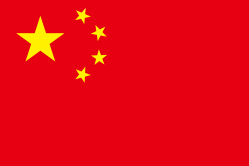In an era where uniqueness and personal expression are highly valued, the demand for personalized, high-quality printed products has surged. Consumers, particularly the younger generation, are increasingly seeking items that stand out and reflect their individuality, whether through custom-designed clothing, accessories, or home decor. This shift in consumer behavior has created significant opportunities for businesses that can efficiently meet these personalized demands. Direct to Film (DTF) printing technology is emerging as a key tool for businesses looking to operate effectively in the personalized customization market.
The Rise of Personalized Demand
Today's consumers are often looking for products that are unique, high-quality, and tailored to their preferences, moving beyond generic mass-produced items. This trend is particularly notable among younger consumers, who utilize personalized products for self-expression. Market trends and various industry reports indicate a significant increase in demand for personalized customization services, driven by the desire for distinctive products.
Capabilities of DTF Printers for Customization
DTF printers offer capabilities that address the needs of producing personalized, high-quality prints efficiently. Here are some key advantages of DTF printers:
Efficient Small-Batch Production: Producing small quantities of unique items efficiently can be challenging with traditional methods designed for large scale. DTF printers facilitate small-batch production by allowing multiple customized designs to be printed on a single transfer film, which can help reduce setup time and potentially lower costs per item for short runs.
Versatile Design Handling: DTF printers are capable of reproducing a wide range of design complexities, from intricate patterns and high-resolution images to detailed text, with accuracy. This flexibility supports businesses in offering diverse customization options to their customers.
Durable and Vibrant Prints: Prints produced with specialized pigment inks used in DTF printing are designed to be vibrant and offer resistance to fading and washing. This characteristic contributes to the longevity of personalized designs, which can enhance customer satisfaction.
Addressing Business Considerations in Personalization
For businesses in the customization market, key considerations include efficiently meeting diverse demands and maintaining quality. DTF printers offer solutions in these areas:
Streamlined Workflow: The process of printing designs onto a film and then transferring them can streamline production, particularly for varied orders. This can enable businesses to produce customized items more quickly compared to methods requiring extensive individual setups.
Consistent Results: The digital nature of DTF printing can contribute to consistent reproduction of designs, which is important for personalized products where print quality is directly tied to customer satisfaction.
Facilitating Offerings: By making complex or colorful prints on various materials more accessible for small quantities, DTF enables businesses to broaden their customization offerings, potentially increasing customer engagement as they can realize more specific design ideas.
Applications of DTF in Personalized Production
DTF technology is being utilized by various businesses to support their operations in the personalized customization market. While specific, quantifiable data from individual small businesses is often proprietary and not publicly available, industry observations and some reported cases illustrate how different types of businesses are leveraging DTF printers:
Online Print-on-Demand (POD) Services: Many online platforms and fulfillment services that specialize in POD apparel and accessories have integrated DTF technology. Its efficiency for producing unique items on demand, suitable for various fabrics, makes it a practical choice for their operational model where every order is custom. This enables entrepreneurs and creators to sell personalized merchandise without managing inventory or production equipment directly.
Local Custom Print Shops: Traditional print shops are incorporating DTF capabilities to expand their service offerings. This allows them to take on custom apparel orders for small groups, events, or businesses that were previously less cost-effective with methods like screen printing for low volumes or many colors. For example, some reports from DTF printer manufacturers highlight how local print shops have seen increased order capacity and profitability on short-run, multi-color jobs after adopting DTF technology (Source: Case studies published by equipment manufacturers often illustrate such trends, though specific business metrics vary).
Independent Creators and Small Brands: Artists, designers, and small e-commerce brands utilize DTF printing for creating their own lines of customized products, such as limited-edition apparel or personalized textile goods sold online. This provides a means for flexible, small-batch production that supports creative control and the ability to quickly introduce new personalized items to the market.
These applications demonstrate how DTF's technical attributes are supporting various business models within the personalized product space, enabling operators of different scales to address consumer demand for unique items.
Conclusion: DTF Technology in Customization
In conclusion, DTF printers represent a relevant technology for businesses operating in the personalized customization market. By facilitating efficient small-batch production, offering versatility in design handling, and producing durable prints, DTF technology aids businesses in meeting diverse customer demands. As demonstrated by its applications in POD services, local print shops, and independent creator businesses, leveraging DTF can support customization offerings and contribute to business operations.
For businesses seeking to navigate the personalized market, DTF printers offer capabilities to support customization strategies and meet customer expectations for unique products. Utilizing this technology can be a component in developing service offerings and pursuing growth in the personalized customization sector.
 English
English







.png)
